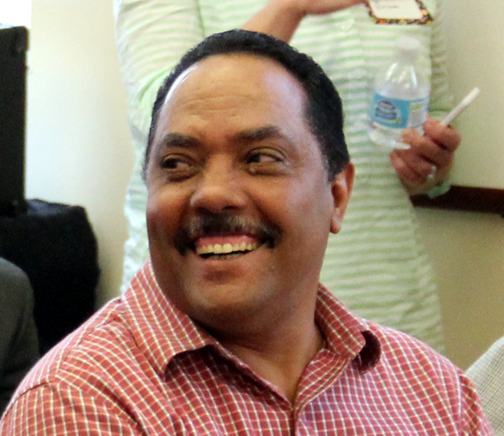By: Tom Duggan Sept, 1, 2015
 Massachusetts Attorney General Maura Healey has ruled that Lawrence City Council President Modesto Maldonado has violated the open meeting law by holding secret meetings and not notifying the public of what was to be discussed or what was discussed during their secret session. Ruling
Massachusetts Attorney General Maura Healey has ruled that Lawrence City Council President Modesto Maldonado has violated the open meeting law by holding secret meetings and not notifying the public of what was to be discussed or what was discussed during their secret session. Ruling
The state’s open meeting law mandates that all meetings of government bodies be held in public but under some circumstances (such as legal disputes or confidential personnel issues) can meet in private but must publicly post the time, date and location of the secret meeting and all issues to be discussed. The state law also states that a roll call vote be taken before going into what is called “executive session” and that any votes taken in secret must be again taken in public. All minutes of these executive session meetings must be released once a vote or decision is made.
The Attorney General noted that on January 13, 2015, The Lawrence City Council went into executive session to discuss litigation against the city but the council violated state law by not taking a roll call vote prior to entering secret negotiations. The AG also ruled that the council failed to publicly announce all the subjects to be discussed in the secret meeting prior to entering executive session.
“Before entering into executive session, the chair must state the purpose for the executive session, stating all subjects that may be revealed without compromising the purpose for which the executive session was called,”Healey’s ruling stated.
The state’s top law enforcement officer issued her ruling this week after a complaint was filed by Valley Patriot columnist Kathy Runge who attended the meeting in January.
AG Healey also said that Council President Modesto Maldonado broke the open meeting law by refusing to be transparent about the council’s actions before the meeting.
“The council president did not identify any of the specific litigation matters that the council would be discussing. Further, the council has not demonstrated why disclosing that it was discussing certain pending litigation matters would have compromised the executive session purpose or otherwise been detrimental to the council’s litigation position. In fact, the council disclosed the specific litigation matters to the complainant (Kathy Runge) in response to the complaint. Therefor we find that the council has violated the open meeting law by failing to state all subjects that could have been revealed without compromising the purpose for which the January 13th executive session was called.”
Healey also rapped Council President Maldonado for failing to publicly post the meeting in accordance with the open meeting law.
“Here, the (public) notice failed to identify the executive session purpose or the specific litigation matters that the council president anticipated discussing. The actual language in the notice made no reference to litigation and suggested instead that the council would be discussing topics not appropriate for executive session, such as “functions, powers, authority and duties within the scope of the Office of the Mayor.”
The Attorney General did not issue any punishment to Council President Maldonado.
